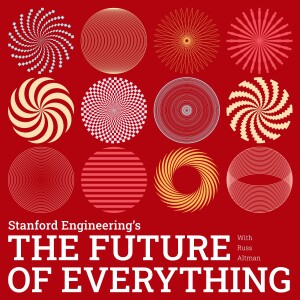
Julie Parsonnet: How faith in herd immunity may be misplaced
 2021-05-16
2021-05-16
Many have now become familiar with the term herd immunity, an idea few outside the infectious disease community knew just a few short months ago.
It’s an elusive concept to comprehend, and harder still to achieve, but Stanford epidemiologist Dr. Julie Parsonnet says it’s important to understand just what herd immunity does – and doesn’t – mean for today’s pandemic.
Broadly speaking, herd immunity is reached when enough people have either recovered from or have been fully vaccinated against an infectious disease and there are no longer enough susceptible people in the entire population (the herd) to sustain transmission. Herd immunity doesn’t mean there won’t be cases, only that when they crop up, they will then die out. Parsonnet says this term is meant for epidemiologists to model what things will and won’t work; herd immunity is never really a public health goal in and of itself. Parsonnet also says that, in models, there are many obstacles to attaining herd immunity, including vaccine hesitancy, especially in people most likely to transmit the infection (young adults); imperfect effectiveness of the vaccine; movement of people; carriage of the virus in non-human hosts; and the continuous appearance of variants.
Importantly, Parsonnet says, herd immunity is unlikely to be permanent. Society must remain vigilant, continuously limiting the number of susceptible people to keep the herd safe. She therefore counsels deemphasizing the concept and instead bringing the diversity of communities into the conversation to achieve high levels of protection in the U.S. and globally. She says every vaccine given is a step in the direction of “normal.”
In this episode of Stanford Engineering’s The Future of Everything podcast, host Russ Altman and Parsonnet also talk about her other research showing that average human body temperature is on the decline worldwide. Listen and subscribe here.
Connect With Us:
Episode Transcripts >>> The Future of Everything Website
Connect with Russ >>> Threads or Twitter/X
Connect with School of Engineering >>> Twitter/X
More Episodes
 2018-02-10
2018-02-10
 2017-08-26
2017-08-26
 2017-08-05
2017-08-05
 2017-06-17
2017-06-17
 2017-06-03
2017-06-03
Create your
podcast in
minutes
- Full-featured podcast site
- Unlimited storage and bandwidth
- Comprehensive podcast stats
- Distribute to Apple Podcasts, Spotify, and more
- Make money with your podcast
It is Free
- Privacy Policy
- Cookie Policy
- Terms of Use
- Consent Preferences
- Copyright © 2015-2024 Podbean.com




